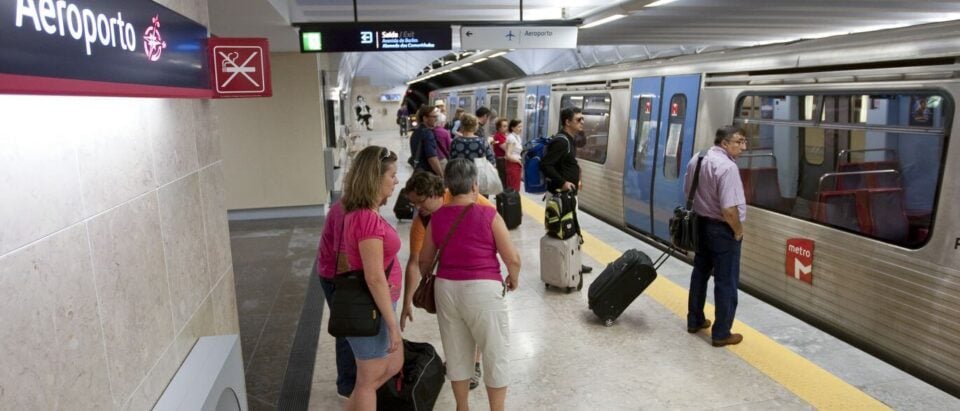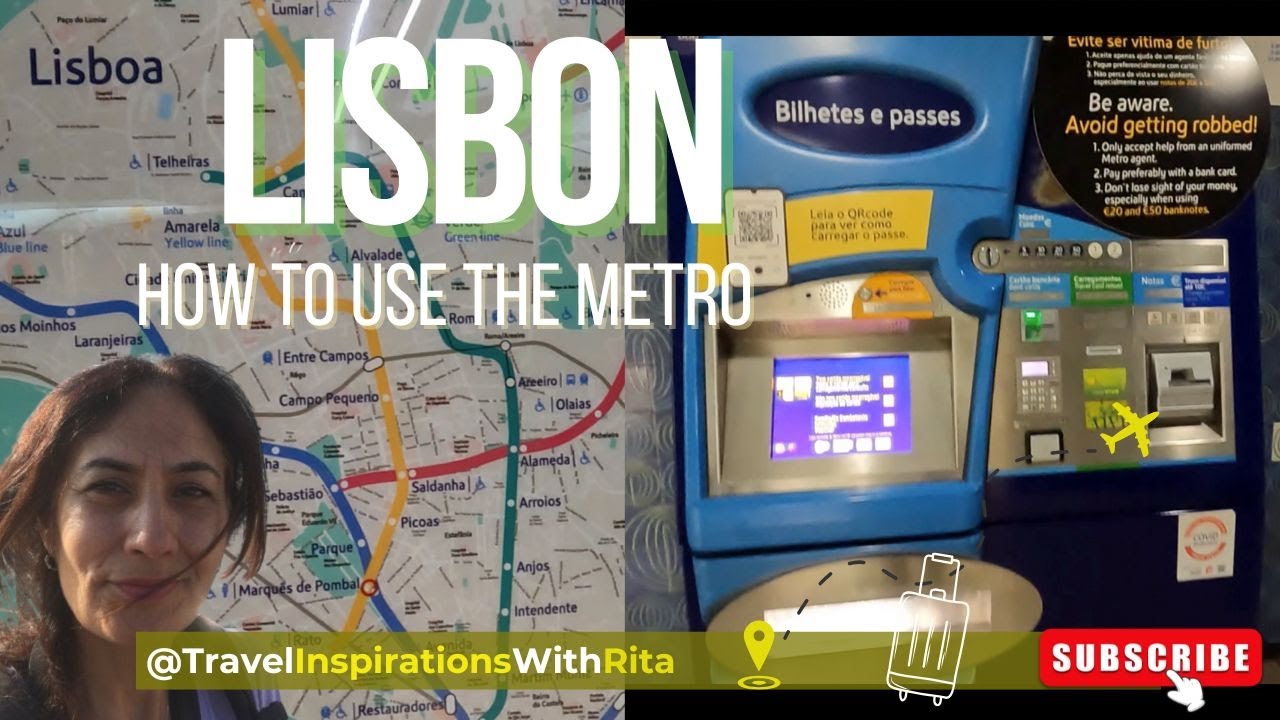Tourists who go to the capital of Portugal often use the Lisbon metro to get around. This type of transport is preferable to a taxi or a rented car. There are problems with parking in the city, especially in the center. Parking is often paid, and therefore it is easier to get around using the subway.
Features and map of the Lisbon metro
Scheme
The Lisbon metro has a total of 56 stations – the underground map allows you to choose the right direction without making any mistakes.
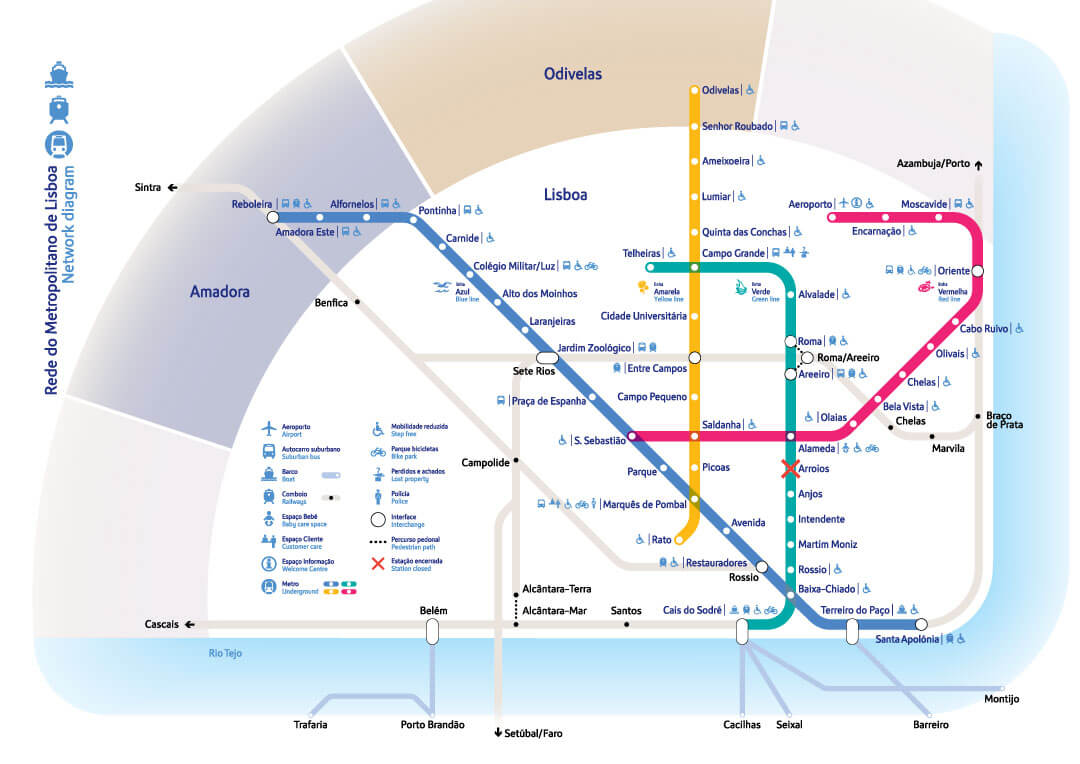
Lines
The Lisbon metro has 4 lines, each of which is marked with a color and has a corresponding name.
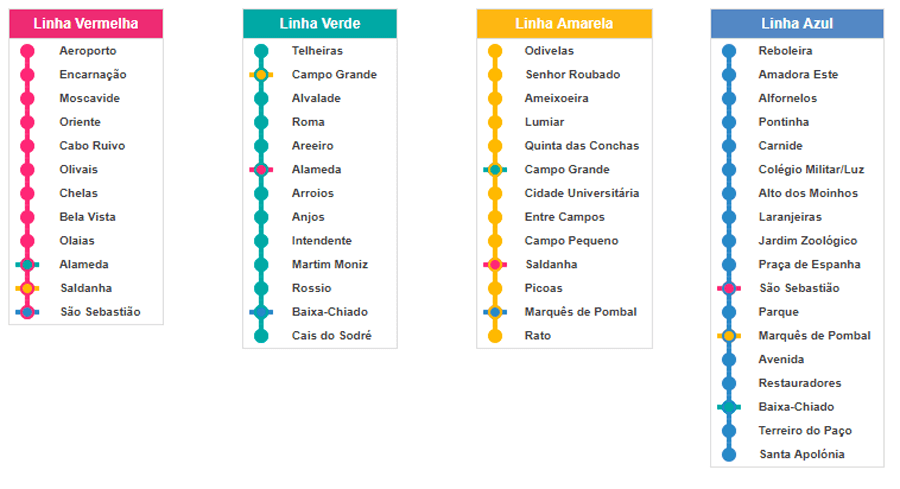
All carriages are clean and bright. There are 6 transfer stations between the lines. Some stations have an original design, which is why they have become a new landmark of Lisbon. The distances between stations are small, trains cover them in just 15-60 seconds.
Features of stations

Passengers will be able to use free wireless Internet at the following metro stations:
- Campo Grande
- Marques de Pombal
- Alameda
- College Militar
Traveling with a child, luggage and bicycles
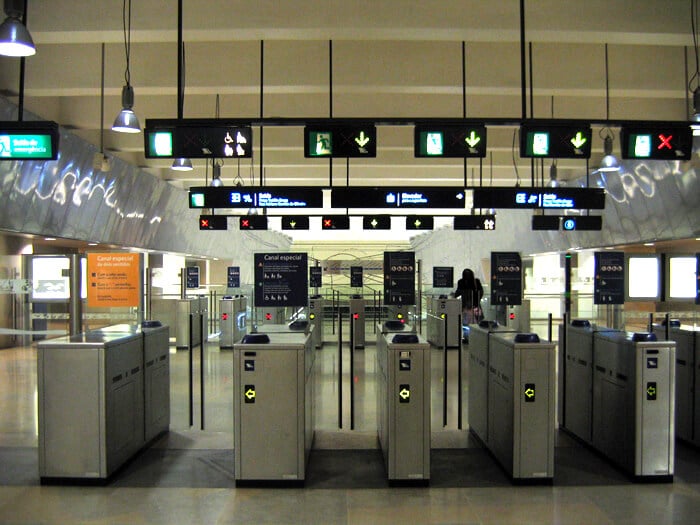
Children under four years of age can travel free of charge if accompanied by their parents. However, adults must hold the child’s hand. Violation of this rule is subject to a fine. Luggage can be carried free of charge. The same applies to bicycles (up to two per carriage), if they do not interfere with other passengers.
To enter or exit with a child, wheelchair, bicycle or large luggage, you should use the appropriate turnstiles, which are marked with the following icons:

A fine will be imposed for violating these rules.
Lisbon Metro Train Schedule
The capital’s underground consists of 4 lines. The Lisbon metro’s working hours are quite convenient: from 6:30 am to 1:00 am.
The last trains depart at exactly 1am from the final station of each line. At night, the intervals between train arrivals are 12 minutes, during rush hours this time is reduced to 3 minutes. Waiting periods for trains also increase on weekends, when a small number of trains leave for the line.
Types of cards
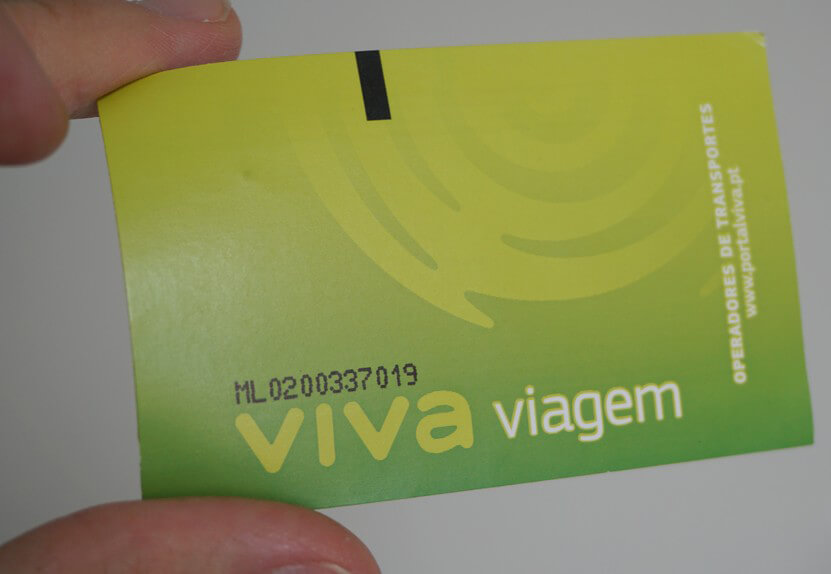
There are two cards available for city guests and residents to choose from. Both have the same functionality. However, the Lisbon metro card “Viva Viagem” is more common than “7 colinas”. The card can be purchased for 0.5€. Most often, such travel cards are preferred by passengers who need to travel underground several times. Any type of card (except daily):
- Has a limitation on the period of use – 1 year. The countdown begins not from the date of purchase, but after the first use.
- The first top-up is from 3€, the second and subsequent ones – minimum 3€, maximum 40€.
After the specified period of use, you can change the card and transfer the remaining positive balance to a new travel card.
Prepaid rides or balance top-ups?
In order to use public transport in the capital of Portugal without problems, including the Lisbon metro, it is necessary to know some features and rules. Here, each person needs to purchase personal cards. It is unacceptable to use one collectively.
Zapping system
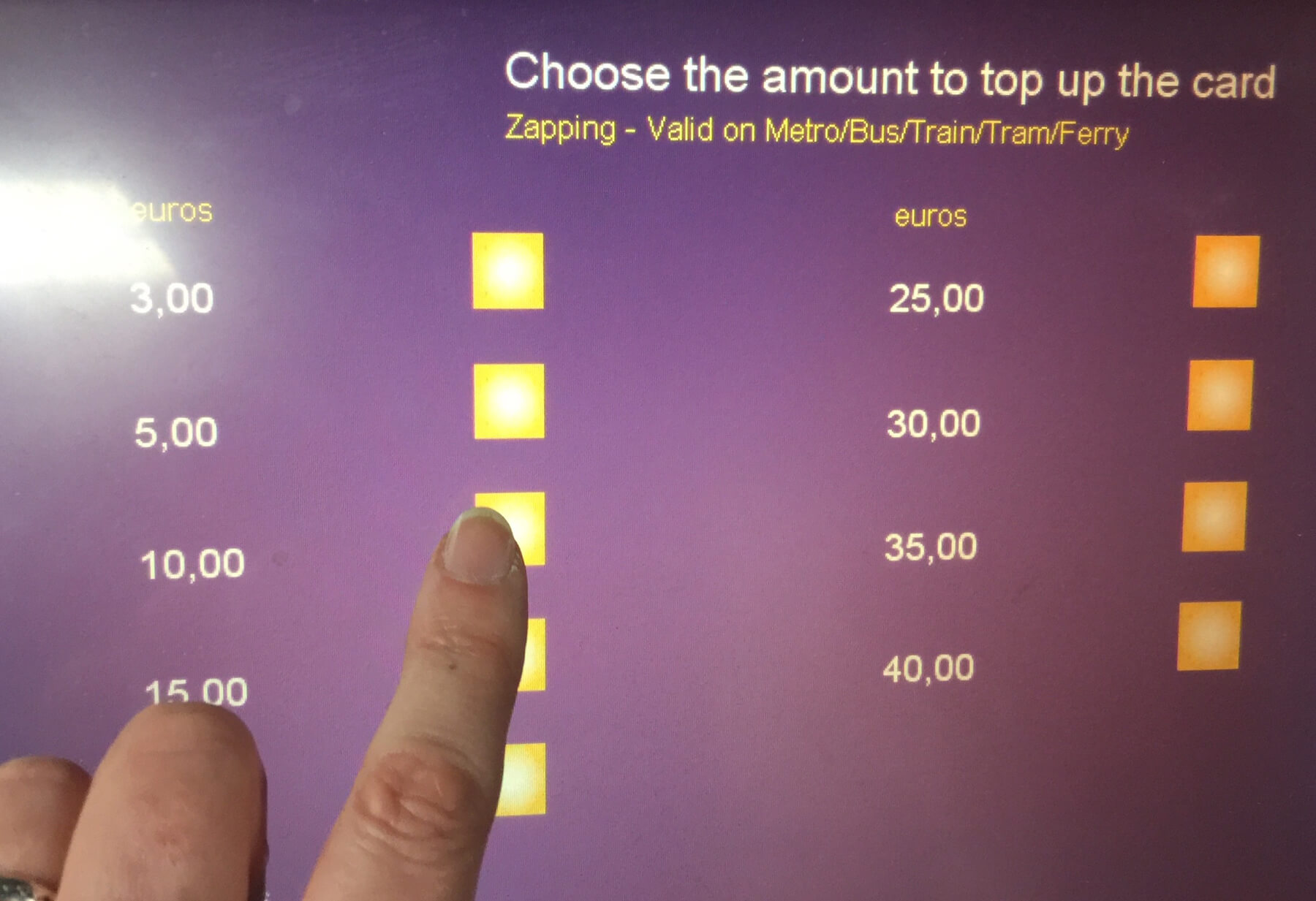
When using such a system, the passenger transfers money to the card. The travel card can be topped up with 3, 5, 10, 15, 20, 25, 30, 35, 40 euros. The higher the payment amount, the lower the fare (up to 1.34€). This is a very convenient system that works until the money on the card runs out. The time frame here is not limited to 24 hours.
Among the advantages of the Zaping system is the ability to pay with a card not only in the metro, but also in any other form of capital transport, including on the ferry and on the train to Sintra or Cascais.
Prepaid trips
You can also buy a daily (24-hour) pass or pay for a certain number of trips. This is convenient for city guests and tourists who want to visit the maximum number of attractions. Cost of trips:
- Only metro and/or Carris – 1 trip – 1.5€.
- A 24-hour pass costs €6.40 (Carris / Metro).
- Travel card for travel on Carris/Metro/Transtegio – €9.55.
- Unlimited travel pass for Carris, Metro and CP (Sintra, Cascais, Azambuja and Sado) – €10.60.
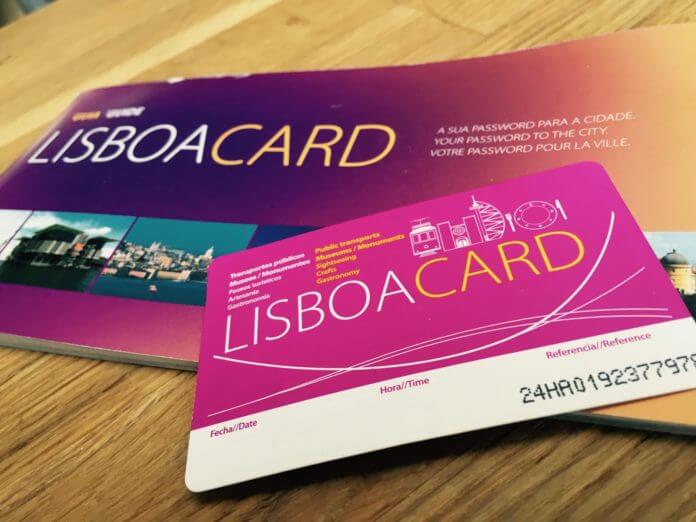
An excellent alternative to a daily pass is the Lisboa Card. This is a card that allows you to not only travel with one pass on different types of public transport, but also use it to visit various museums and attractions in Lisbon .
Useful tips
Experienced tourists recommend choosing two cards per person for traveling around Lisbon. This will cost only 50 cents more, but it is possible to save on travel. If you need to use the metro (or other public transport) for a long time during the day, it is recommended to purchase a card with prepaid trips.
If you need to use commuter trains or take a ferry, you should use “Zaping”. To avoid mixing up the cards, it is better to sign them immediately. Each Viva Viagem card can be used both in the city and outside it, as well as in the metro and in the Carris network.
Where and how to buy/top up a card?
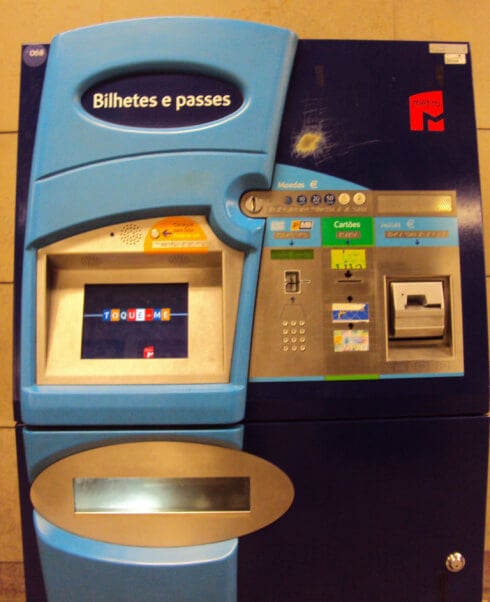
Features of purchase
To pay for travel on the Lisbon metro, you should use cards. Users top them up with funds or pre-paid trips in advance. Cards can be purchased, topped up, or pre-paid for a specific number of trips in special machines that are installed at the entrance to the metro. A simple guide will help you understand how to buy a metro ticket in Lisbon. You can also top up your cards at metro ticket offices.
Buying tickets
There are special machines at the stations where you can buy tickets for the Lisbon metro – a simple instruction will tell you how to use them:
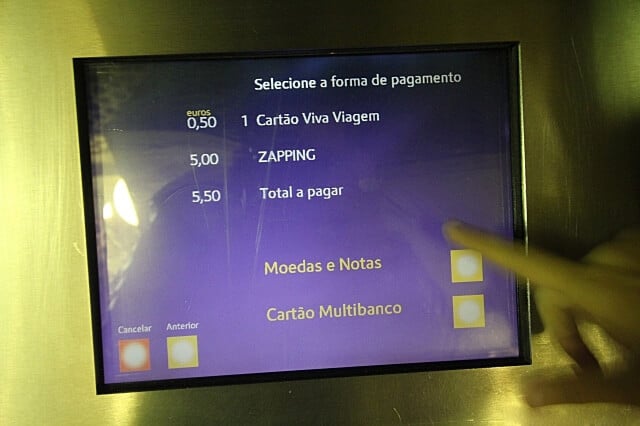
- Touch the machine screen to activate the device.
- In the menu that appears, select English (Portuguese and Spanish will also be offered).
- Select the option “Without a reusable card”.
- Specify the number of cards (each will cost the future owner 0.5€).
- Click on the “Stored value” (Zapping) button to top up your balance with a certain amount.
- In the window that opens, indicate the replenishment amount (minimum 3€).
- Choose a payment method in cash. Cards are also accepted, but you can pay with credit cards from local banks.
The official website of the Lisbon Metro is www.metrolisboa.pt.
Discover Lisbon with Tram 28: A Guide to the Famous Yellow Tram Route
How to buy a metro ticket for 1 trip?
To purchase a single-trip ticket, use the machine.
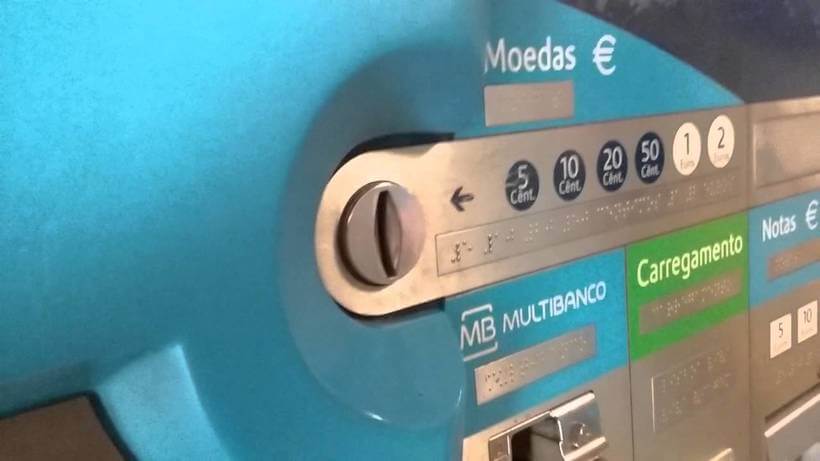
The cost of the trip is 1.5€. To change the number of tickets or travel cards, use the signs “-” or “+”. You can pay for your purchase with the banknotes that the machine accepts (their denomination will be displayed on the display screen at the start of operation).
Change is given in coins, but no more than 10 euros at a time. If there is little change left in the device, it starts accepting only those bills from which it can give the required amount of change. You can also pay for one ticket with a card issued by a local bank. The procedure is simple: insert the card into a special “Multibanco” receiver, then go through the authorization process and wait for permission to withdraw the credit card. If there is no connection to the bank, you will have to repeat the procedure. After payment, the receipt must be kept!
How to use the metro in Lisbon?
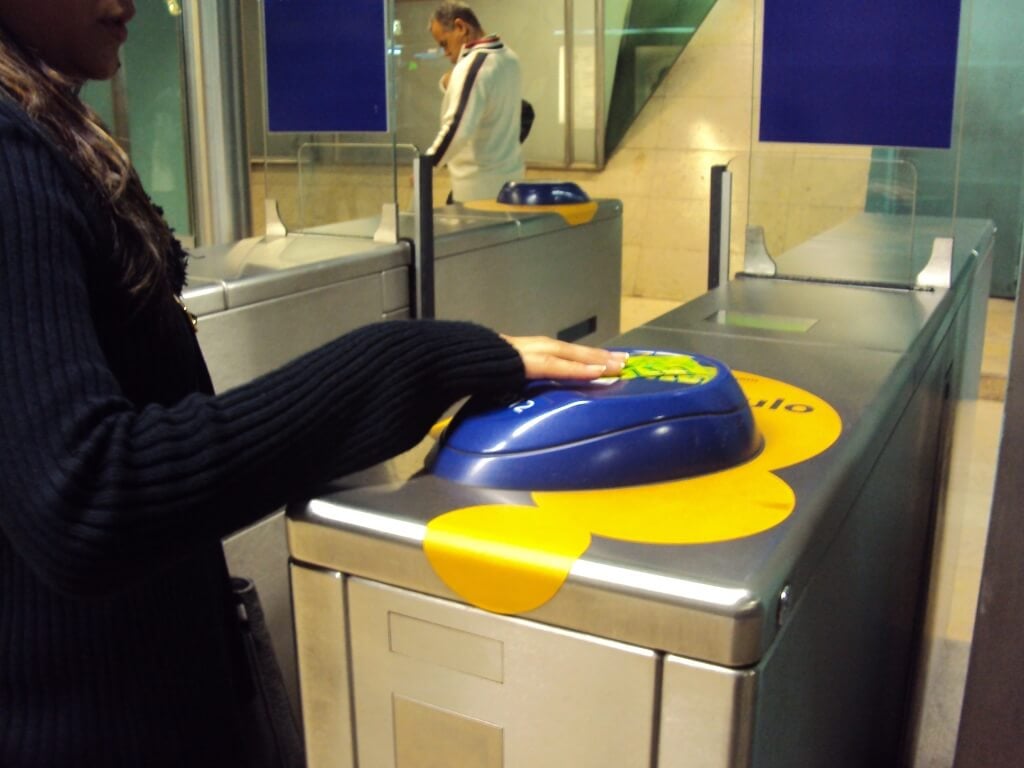
When going down to the trains, you must apply your card to a special device at the turnstiles. The same procedure is performed when exiting. If you are going to make your only trip on public transport, you must validate your card and be sure to keep it until you exit. Otherwise, the passenger will be considered a ticketless passenger and will therefore pay a hefty fine.
The scheme for using public underground transport is simple – you should:
- Place the purchased and topped-up card on the reader. This is a blue square or circle located directly on the turnstile. You should wait until the green indicator lights up on the board. Information about the number of remaining prepaid trips or the balance will be displayed here. The validity period of the travel card is also indicated.
- If the display lights up red, this indicates a lack of funds or a lack of prepaid trips. A similar situation is also possible in the case of a card malfunction with a positive balance. In this case, you must contact the point of sale to replace the faulty travel card.
The peculiarity of the Lisbon metro is that ticket inspectors walk around quite often. Fines for travelling without a ticket are high – 100 times the cost of the trip.
The best restaurants in Lisbon – where to eat deliciously

